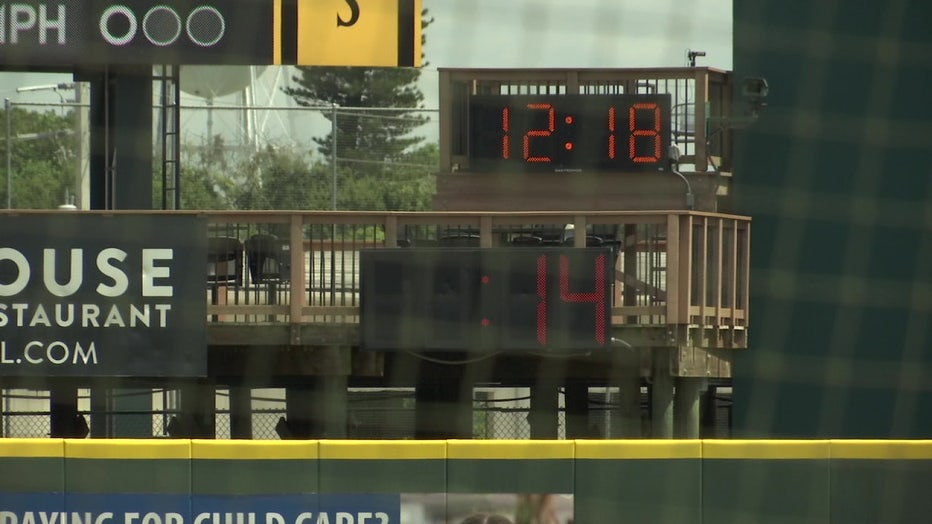Pitch clock comes to minor league parks across Bay Area
BRADENTON, Fla. - Baseball is the only major North American sport that doesn't abide by any game clock or set time. But across Minor League Baseball this summer, time is catching up to America's Pastime.
"You don't really have time to think about anything you just have to do," said Bradenton Marauders pitcher Drew Irvine.
At MiLB stadiums, like LECOM Park in Bradenton, time is of the essence thanks to the addition of a pitch clock.
"It's definitely something that's different and something that you have to be cautious of when you go in the game," said Irvine.
Now, pitchers have 20 seconds between pitches, or they surrender a ball to the batter, in the hopes of speeding up the game that knows no time.
"It's almost like [being] a quarterback. You have to look at the clock and realize you have nine or 10 seconds," said Irvine.

Last month, meanwhile, Major League Baseball analyzed the data and found that, thanks to pitch clocks, MiLB games were finishing nearly a half-hour faster than they were a year ago.
"I think coaches for a long time have been hoping and trying to get their players to play with this sort of speed," said Marauders Manager Jonathan Johnston.
But not only are the games running faster, MLB found that basically every other statistic remained unchanged. Quite simply, the games were just moving along.
"The game is the game. All we're doing is removing the nothing in between," said Johnston.
With little to no impact on statistics like batting average, runs per game, hits, walks and batters hit by pitches, Irvine thinks the pitch clock is ready for the show soon.
"I think if it draws more fans, gets for people in the seats and sells more tickets than so be it," Irvine said.



